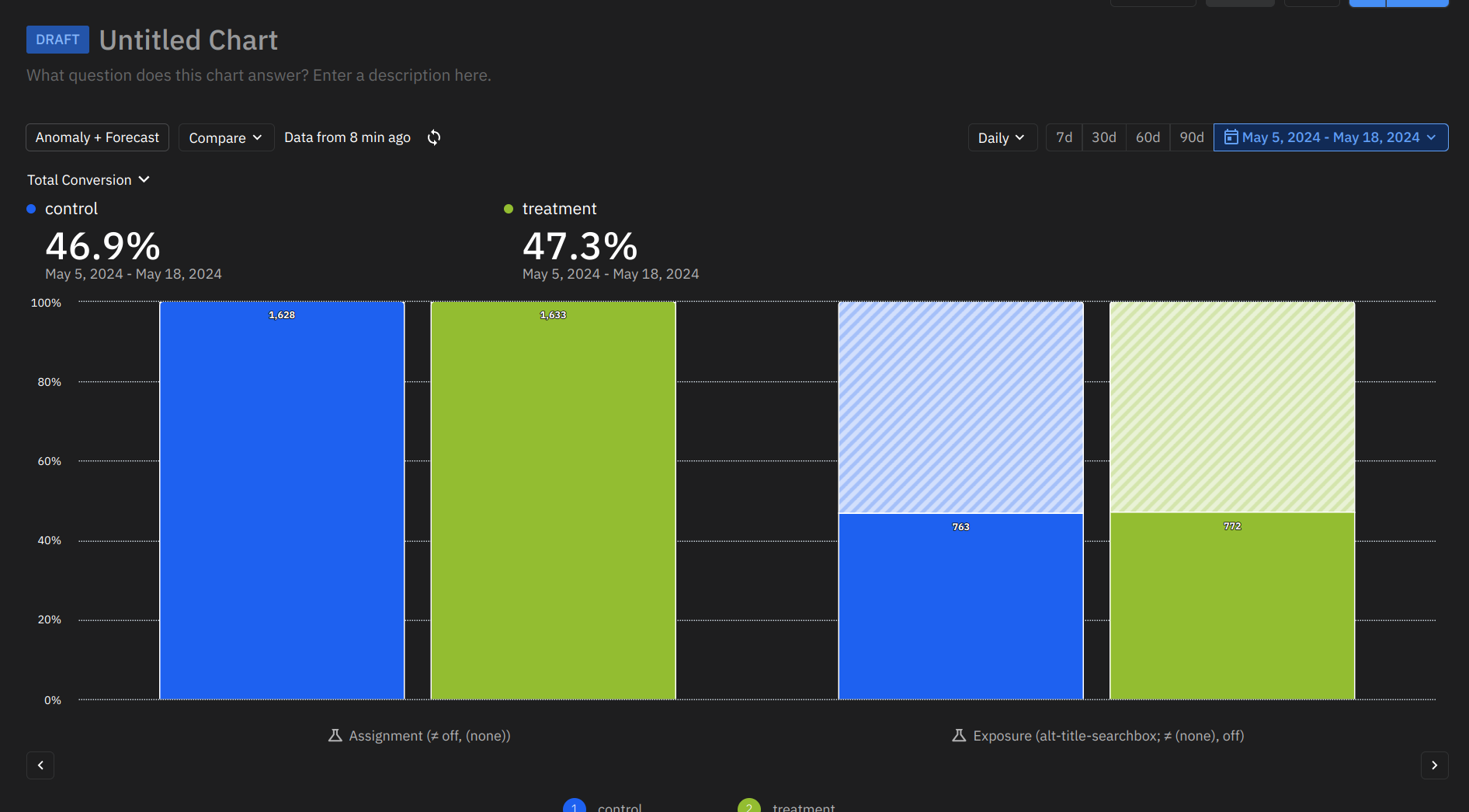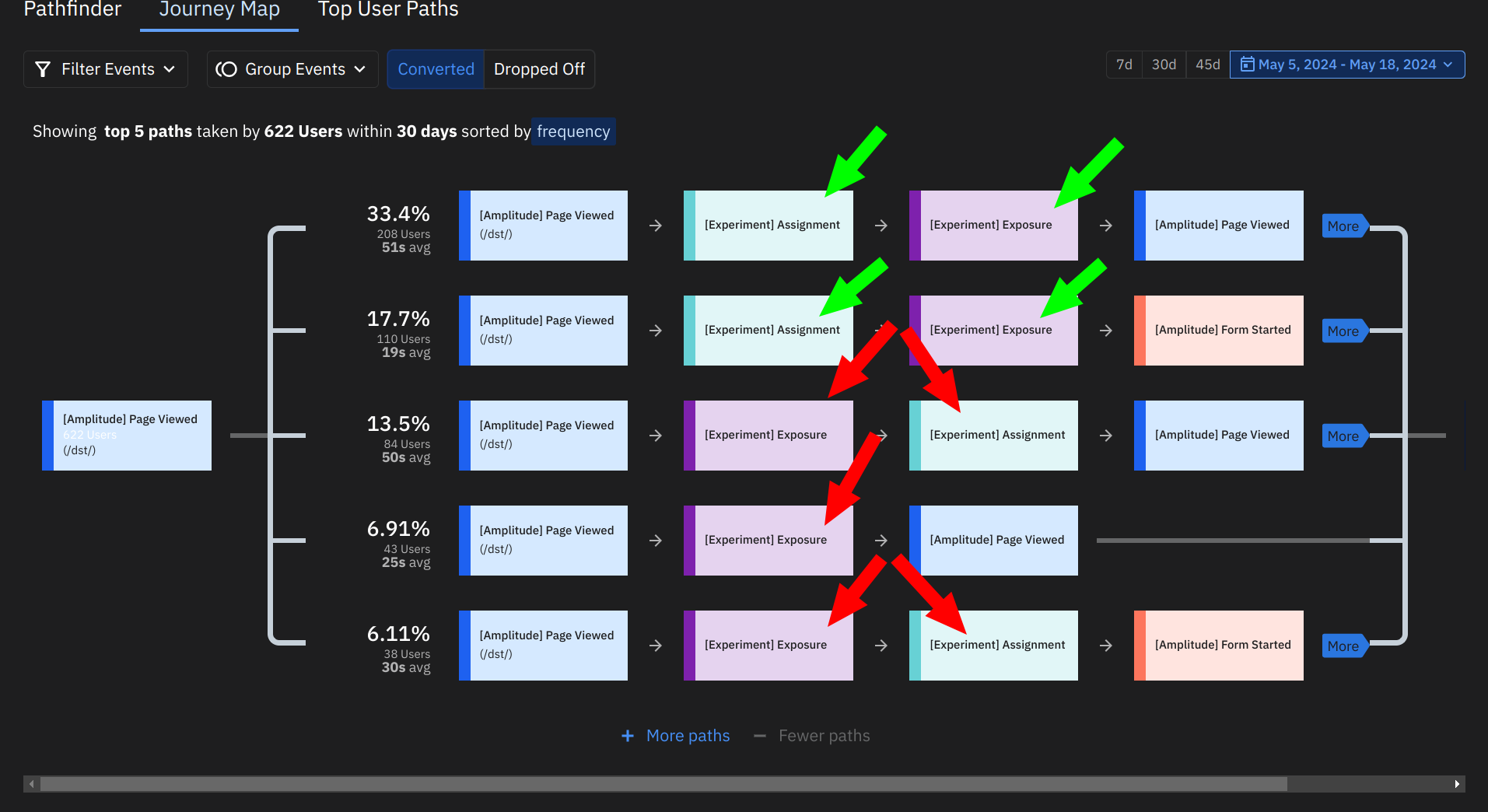We have recently integrated Amplitude analytics and have more recently been testing Amplitude Experiments on our website. For our first test experiment, the ratio between assignment and exposure is roughly 2:1, so there is double the amount of assignments as there is exposures and we don’t know why that is?

We also checked in Pathfinder and could see the following problem: Sometimes exposures seem to occur before the assignment event, is that an issue?

We included the Amplitude browser and experiment sdks via the npm modules @amplitude/experiment-js-client and @amplitude/analytics-browser We then initialize the experiment sdk like so:
private _experiment = Experiment.initializeWithAmplitudeAnalytics(<br /> environment.amplitudeDeploymentKey,<br /> { fetchOnStart: true }<br /> );<br />as well as the browser SDK:
amplitude.init(environment.amplitudeApiKey, { defaultTracking: true });and here is the code that checks the variant with additional experiment.start() call just in case:
hasVariantValue(<br /> experimentFlag: string,<br /> variantValue: string<br /> ): Promise<boolean> {<br /> return new Promise((resolve, reject) => {<br /> this.initExperiments().then(<br /> () => {<br /> const variant = this._experiment.variant(experimentFlag);<br /> resolve(variant.value === variantValue);<br /> },<br /> (err) => {<br /> reject(err);<br /> }<br /> );<br /> });<br /> }<br /><br /> initExperiments(): Promise<boolean> {<br /> if (this._initialized) {<br /> return Promise.resolve(true);<br /> }<br /><br /> return new Promise((resolve, reject) => {<br /> this._experiment.start().then(<br /> () => {<br /> this._initialized = true;<br /> resolve(true);<br /> },<br /> (err) => {<br /> reject(err);<br /> }<br /> );<br /> });<br /> }<br />and is then used like so:
const amplitude = AmplitudeService.getInstance(); <br />amplitude<br /> .hasVariantValue('alt-title-searchbox', 'treatment')<br /> .then((active) => {<br /> console.debug('[amplitude] split test active = ', active);<br /> if (active) { /* split test active */ }<br /> });<br />We do not set any additional device or user ids.